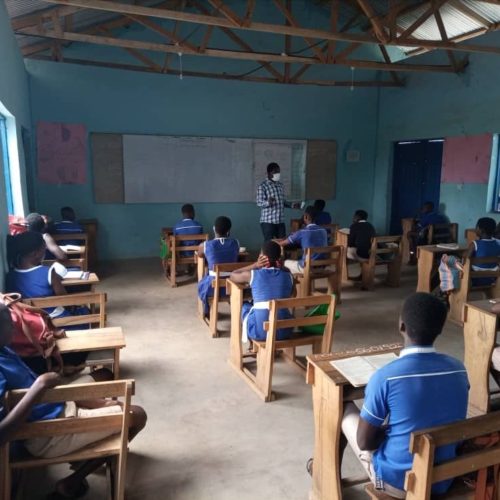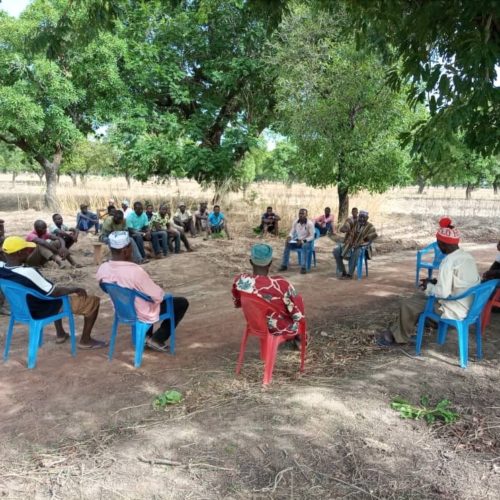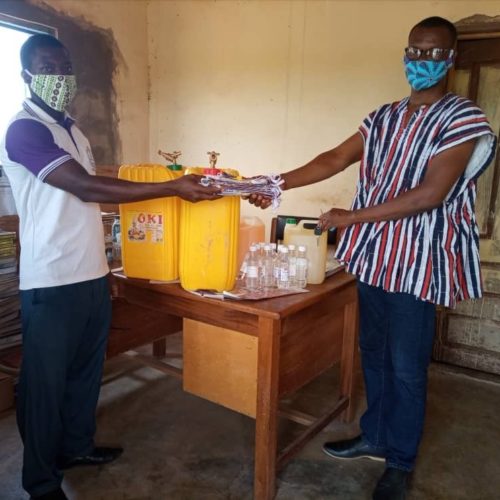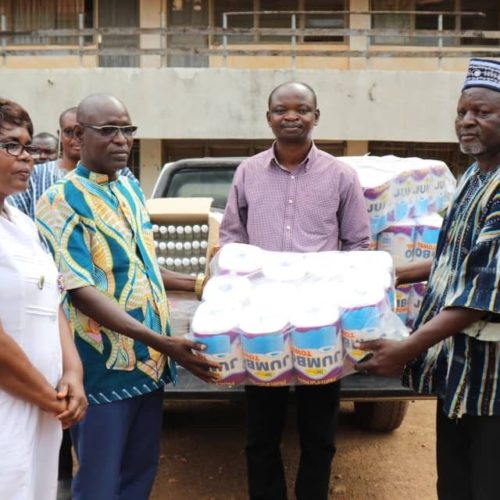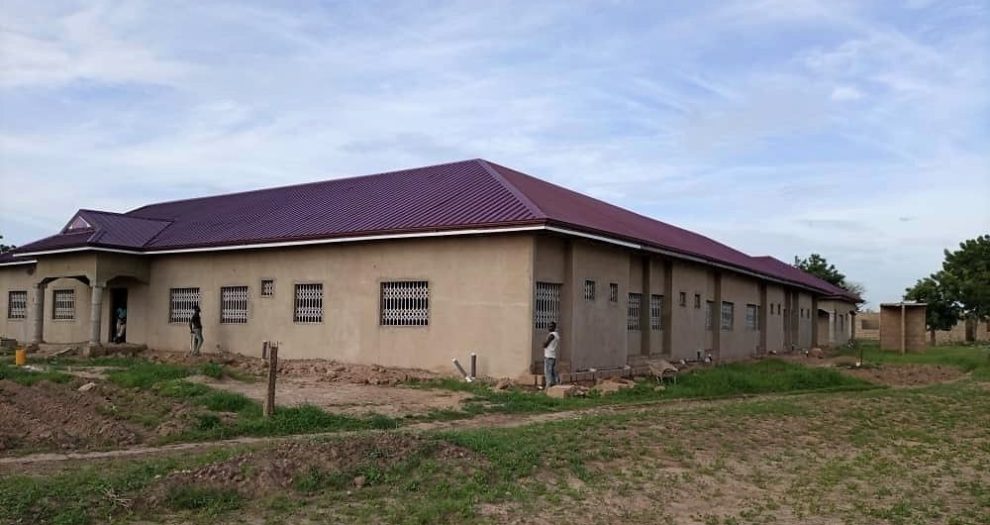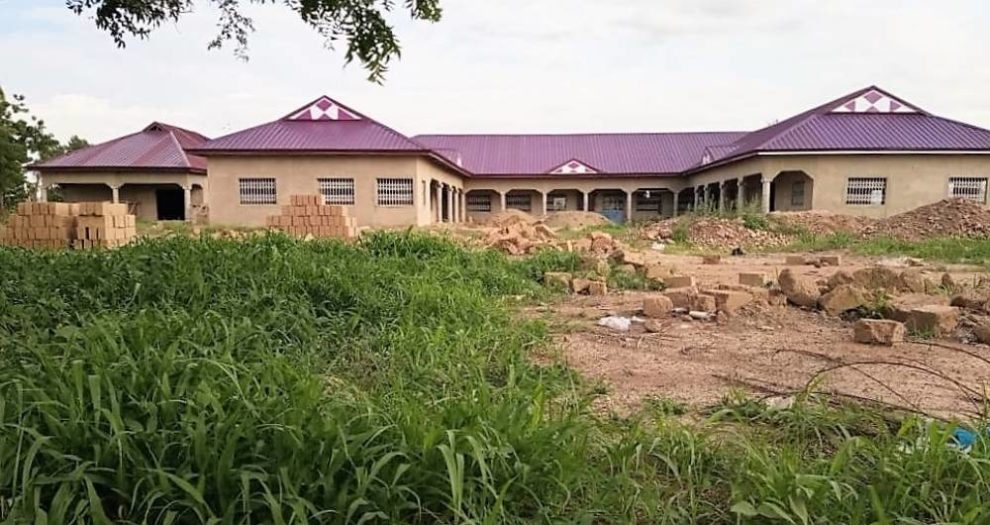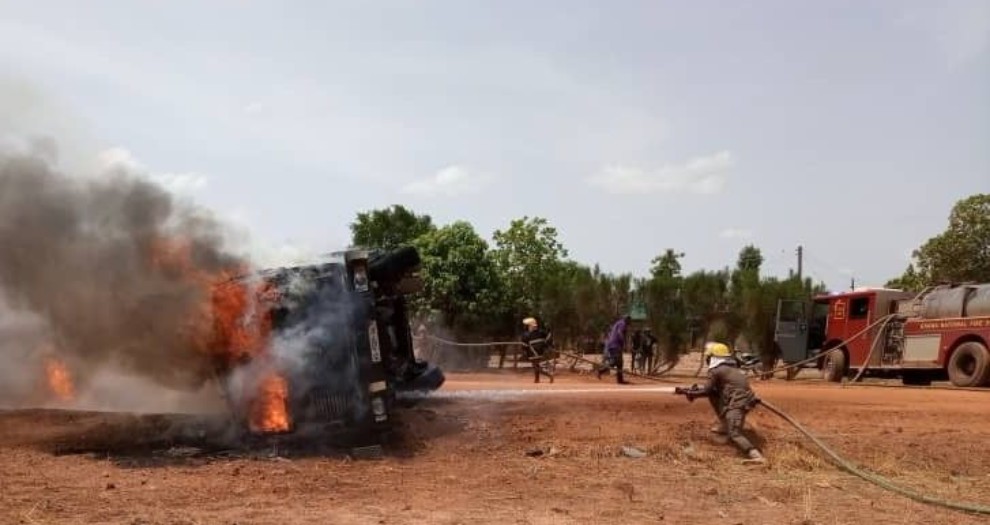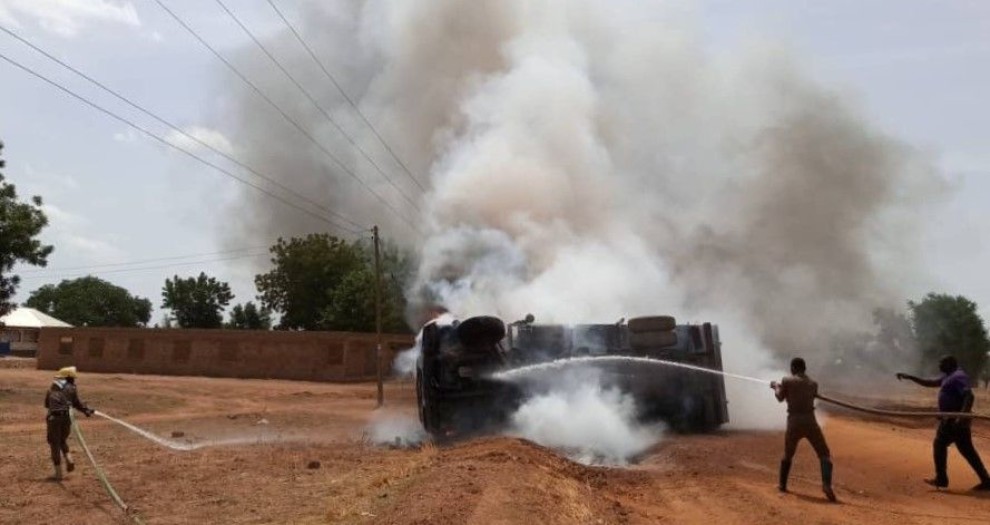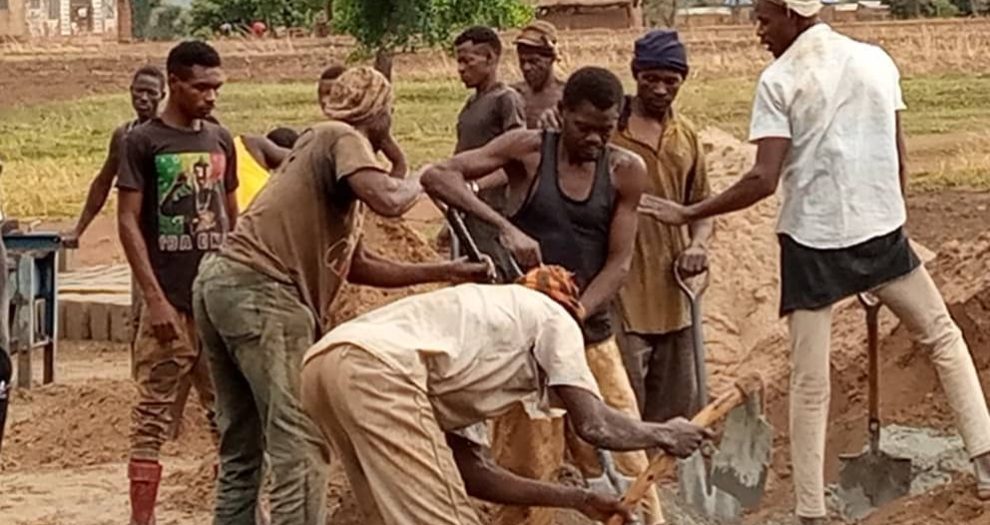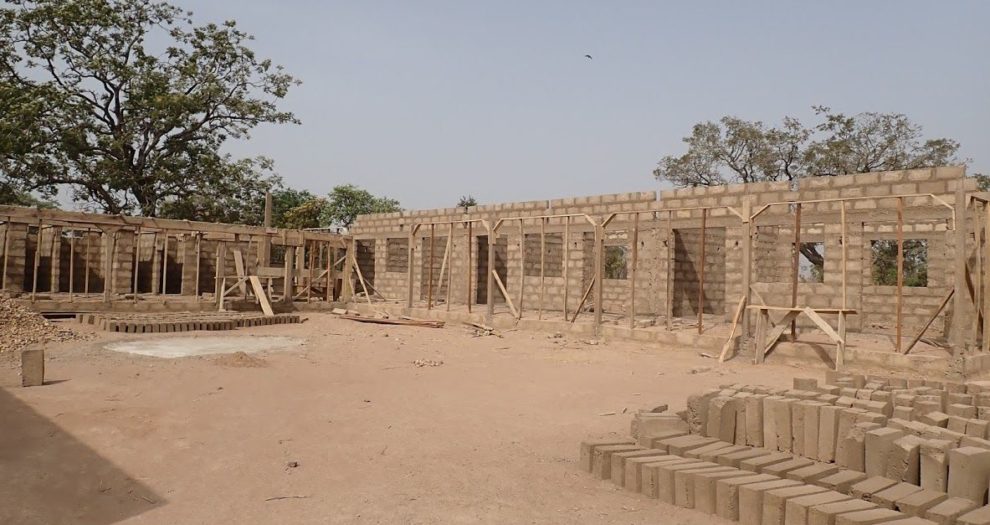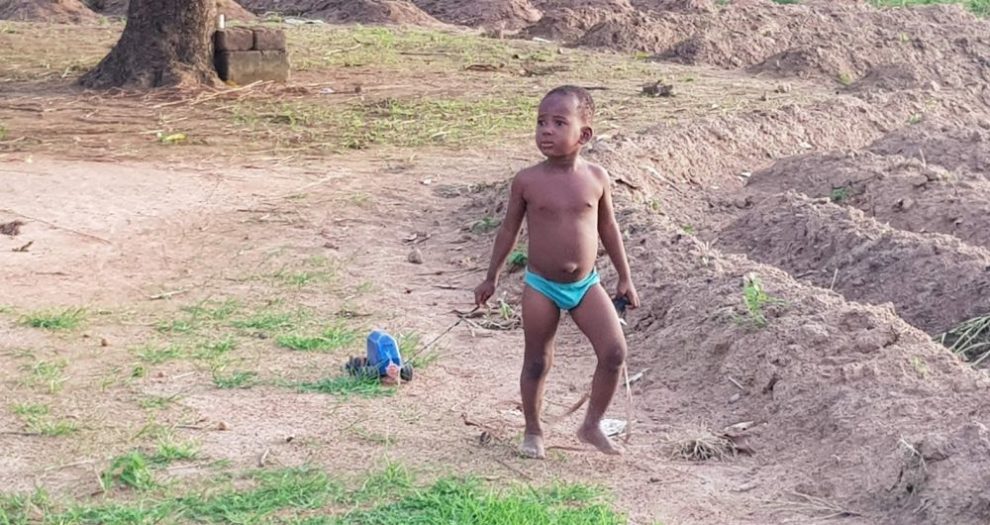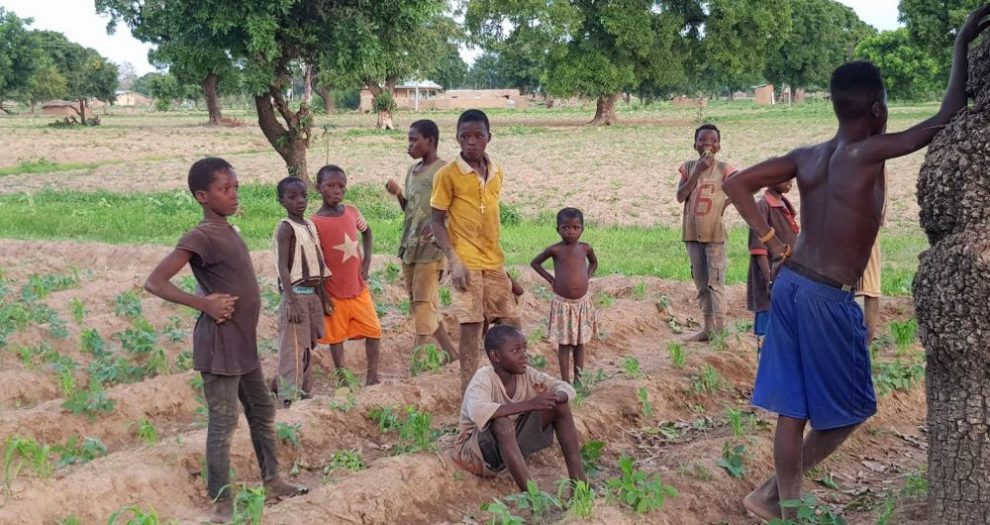Welcome to our Summer 2020 newsletter
The Savannah Education Trust is a charity set up to provide an education for some of the poorest children in West Africa. We now have eight Christian schools in northern Ghana in the villages of Bagri, Gberi, Korh, Pavuu, Mettoh, Tungan- Zagkpee, Boo and (completed since the last newsletter) Baapari. The charity also ensures every schoolchild receives a meal each day and funds a number of teacher training scholarships to attract teachers to this remote and poor area. In this newsletter:
- Coronavirus and Savannah
- New Teacher Training Centre
- Tipper Truck Accident
- A New Junior High School at Korh
- A New School: Danko-Buree
- Thank You
You can also download a PDF version of this newsletter.
Coronavirus and Savannah
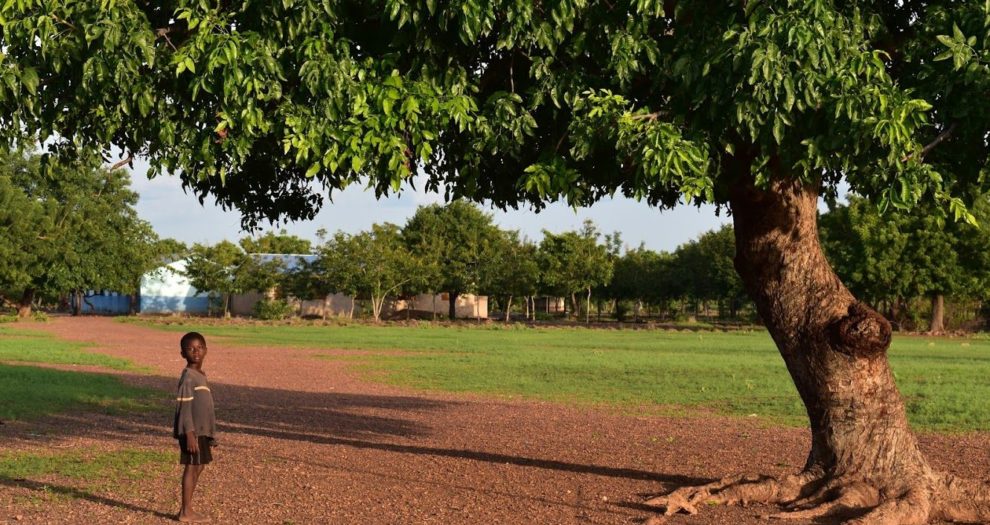
The end of the long, hot, dry season is an attractive time in northern Ghana. The relentless heat begins to dissipate and the barren earth bursts out with green shoots. It feels as though life is once more returning to the savannah.
But, although the scene surrounding our village schools looks attractive, there is something sadly missing. The noise of the birds and the insects can be heard – but not the voices of children. As in the UK, all schools have been closed.
For our pupils that is particularly challenging. Their families have come to very much appreciate both the education and the meal being provided each day. The closure has coincided with what is known locally as the ‘hungry’ season – the months leading up to harvest at the end of summer. The effect of the (thankfully so far relatively short-term) general lockdown meant that food prices rose, at least temporarily.
In response to the rise in living costs, we have increased our allowance to our staff. There is much fear in the local area, and very little provision for combatting the virus. We have, therefore, also made a contribution toward supporting local health workers with some basic facilities including Veronica buckets (dustbins with taps on to allow for hand-washing – a very effective local solution to a significant problem), locally produced face masks, liquid soap and hand sanitisers. Although this, of course, has meant an increased cost at a difficult moment we felt as trustees that it was the right thing to do. We feel a great responsibility and affection for both our staff team and the communities that they serve.
The school buildings reopened at the end of June for the children in the oldest three years at our schools (aged approximately 11 to 14). The intention is that this will allow pupils to take their national examinations. It is hoped that a more general reopening will take place soon.
Although there is much uncertainty as to what the course of the virus might be in Ghana, the remote area that we serve has thankfully been spared a major outbreak so far. In preparation for the full reopening of our schools, there is much activity taking place. We are funding classrooms to have access to Veronica buckets, hand sanitisers and face masks for the teachers.
New Teacher Training Centre
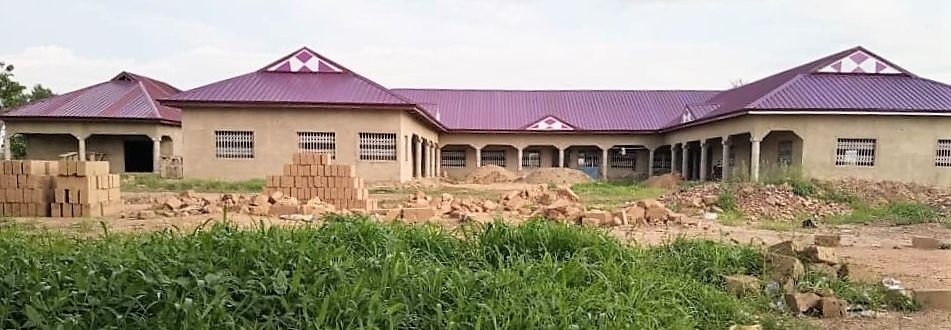
On the edge of the local market town of Lawra a striking new building is rising. It sits back from the main road and has a bright red roof. It is the new teacher training centre for Savannah, and also incorporates our new office.
We hope the new building will have significant benefits as a central facility for all of our teachers and headteachers. Life as a teacher in a village school can often be lonely. This will be a gathering place for sharing experiences and for more formal learning. It will also hold resources – both digital and traditional – to help staff. We are very keen that the standard of education in our schools should be at a high level and we also want to support our teaching staff.
Alongside this continuing professional development, our plan is to run a Bible School from the resource centre for several weeks a year to support our Christian teachers, not least in the taking of assemblies at their schools.
On occasion, we will also allow the centre to be used for other (suitably appropriate) organisations who don’t have a presence in this remote and impoverished area. As funds allow, the intention is to add some accommodation which might also allow a small income for the office.
The centre has been a considerable financial outlay for the charity and we are thankful that it has received support from some grant-making organisations. We have also been able to allocate funds from a legacy meaning that we only have a small shortfall on funding.
Tipper Truck Accident
The road from Lawra out towards Eremon is typical of many of the roads in this area: a bumpy mud-track. In June our largest vehicle, the tipper truck, was driving along this road. It fell on its side (we think because of a mechanical fault) and caught fire. We are thankful to God that the driver, Joshua, was pulled from the wreckage and escaped with his life. Although he went to hospital, he has now made a full recovery. Sadly the vehicle was completely wrecked. We are currently hiring a replacement vehicle until funds are available for a replacement.
A New Junior High School at Korh
Korh is the furthest of the Savannah schools from the area’s major market town, Lawra. It is situated almost exactly due east, relatively near to the road cutting south to Jirapa. It is in a beautiful and peaceful location, and serves a number of scattered communities.
The Savannah primary school here was opened in 2014 and commissioned that year in a formal ceremony. Like all of our schools, except Pavuu, the main building consists of three blocks grouped around a courtyard in a ‘U’ shape – and all in the signature colour of blue.
Our first pupils – those who have been there from the very start – are now reaching the end of primary school. Over the past year, we have therefore been constructing a Junior High School for them and are thankful to report that this is now finished. Junior High Schools roughly approximate to the first three years of UK secondary schools. In Ghana, the national examination is sat at the age of 14.
A New School: Danko-Buree
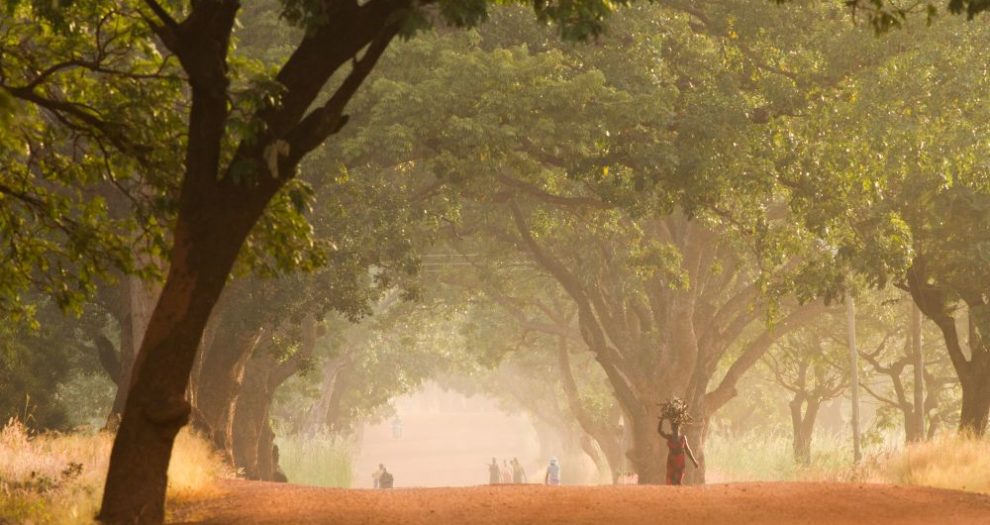
The team in Ghana have been busy, even during this period when schools have been closed, talking to the Ghana Education Service (the government) and to local communities about the possibility of a new school. We are thankful to report that sufficient funding has become available to build a new Christian school for the twinned communities of Danko and Buree – villages to the north east of Lawra (on the road to Eremon). It is a hugely significant and exciting moment for these communities who have tried to start a fledgling school already, although predominantly under trees and without proper teachers. If the Lord will, this will be our 9th school and we pray that it will be a blessing to this community.
The following account of our very first visit to Danko-Buree was written by a 15-year-old in June 2018. It was written immediately following the opening of our 6th school at Tungan-Zagkpee.
The celebratory drums of Tungan-Zagkpee still ring in our ears as we set off. Standing on the back of the truck, wind in our hair, the bustling evening scenes fly past us. Market stalls making their last sales, some closing for the day. Children playing. Mothers cooking. A village gathering. A funeral. Lives so alike, and yet so unlike our own, set against a backdrop of intense green grass and shocking blue sky. The sun has dipped low, but the fading light has not made the colours of the savannah any less vibrant. If anything, the landscape is more beautiful in the day’s last golden hour.
We have no destination. After the morning’s school opening ceremony, it seems like a fitting finale to explore the remote regions of Lawra District – visiting villages without schools.
Our drive takes us into uncharted territory. We turn onto another rusty red road, dust hovering in the air and the smell of burning wood rising from the huts which line the stunning avenue. This particular road is unusual. Shaded by huge trees, all planted equal distance apart along an ironed ribbon of red, we are told that they are the lingering emblems of white rule in Northern Ghana. The colonial masters demanded that these trees be grown to shade them as they made their inspections. Now they remain as a striking monument of Ghana’s turbulent history.
The remaining light fights to make its way through the thick coverage above, but enough remains for the floating dust to light up, an orange haze rising around us.
Alfred makes the decision to turn onto a track that comes off this beautiful road. The track starts off well, but as we continue, light dimming, it becomes increasingly rugged.
We are now completely off the beaten track, no longer travelling through a village, but far out into the bush.
Smiling children wave, then blur and are gone as we race past. We cross small bridges, bump past children on bikes and parents returning home, until what could be called a road becomes nothing more than a track, then a path, then just open savannah.
The truck stops abruptly. It can go no further. It is here, at the end of this long and rugged path, we reach a tiny mud hut.
A man appears in the doorway of the house and welcomes us to his home. This warm welcome is typical of the friendly people in the Lawra District. We become aware of a little figure emerging behind him. He looks no more than five. He wears nothing apart from a pair of pants and drags behind him a plastic bottle, which he clearly pretends is a car. After speaking with the family, the trucks turn round and we begin to make our way back.
We think about what we have just seen. That five-year-old boy with no clothes, no school and his plastic bottle on wheels. Such poverty.
The trucks drive slowly, bucking and jerking as they traverse over the uneven ground, when we stop again. Just a few metres away, little more than a silhouette in the struggling light, there is a shea nut tree. As we approach, we see a small group of children, some in the tree shake the branches and those on the floor gather the falling shea nuts. Alfred explains that for these children, the shea nuts might be their only meal that day.
Returning to the trucks one last time, it is startling to think of the contrast between the sparkling blue school on the hill that we opened this morning, and the encounters we’d had along this road.
As we make our way back to the red avenue, our thoughts are alight. It is impossible not to think of the impact that a school would have on this community. On those children with no other future but to follow previous generations into the fields.
2 years later…
Today, sat at home with the country in lockdown and the beautiful red roads a distant memory, we receive the news that funding has been secured for another Savannah School. It is hard to describe how moved we are to hear that the walls of a beautiful blue building will soon rise, just 400 metres north of that shea nut tree.
Prayer has been answered, and now numerous lives along that road will experience the hope that only a Christian school brings. The children beneath that tree can have a proper meal every day. And that little five-year-old will finally have some clothes – a blue Savannah uniform.
Thank you
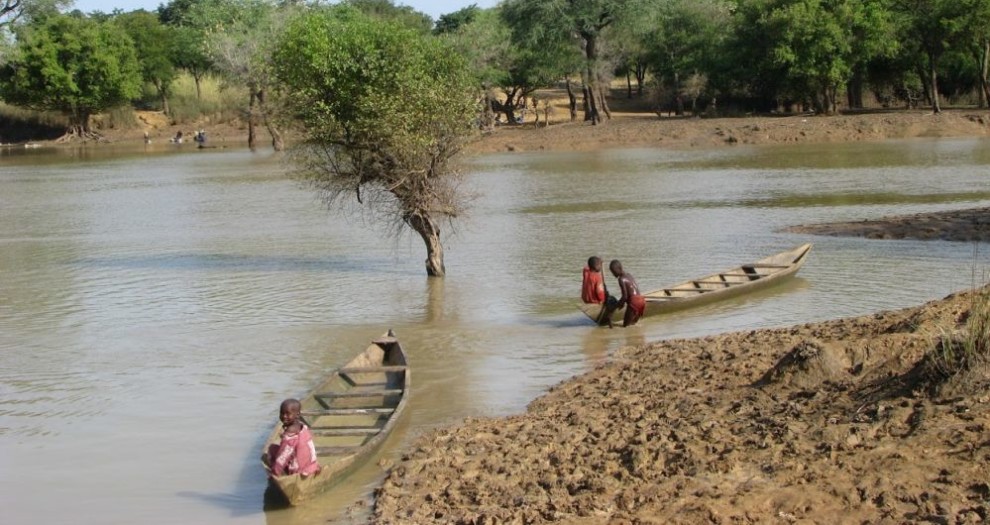
This has been a difficult time for everyone. And that is also true of Savannah. In March, feeling the pressures of the start of lockdown in the UK, one of the trustees joined the staff meeting of the team in Ghana by telephone. He came off the phone feeling sad that the schools were closed, worried about the effect of the lockdown on our loyal staff team and aware of possible looming financial challenges. At that very moment, an envelope landed on the doormat. It was the encouraging news of a significant donation.
We are thankful to God for supplying all of our needs. As Psalm 50 states, He owns the cattle upon a thousand hills.
We remain enormously grateful to our kind supporters. Whether the gifts are ongoing direct debits, one-off contributions or legacies, you allow the work to continue and expand. And you should never underestimate what an encouragement you are to us in the work – and especially during difficult days.

